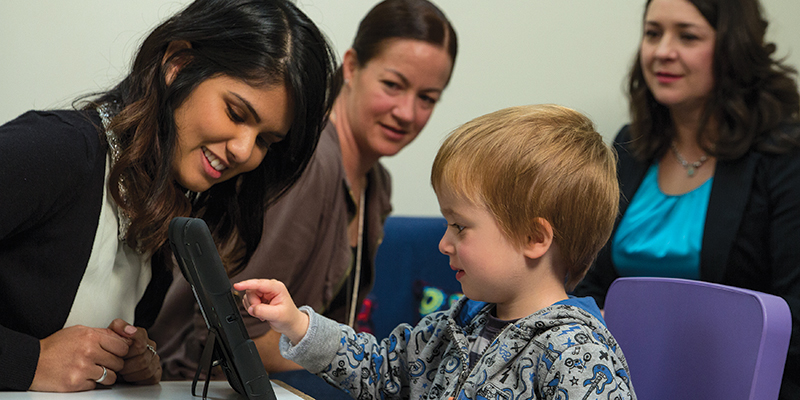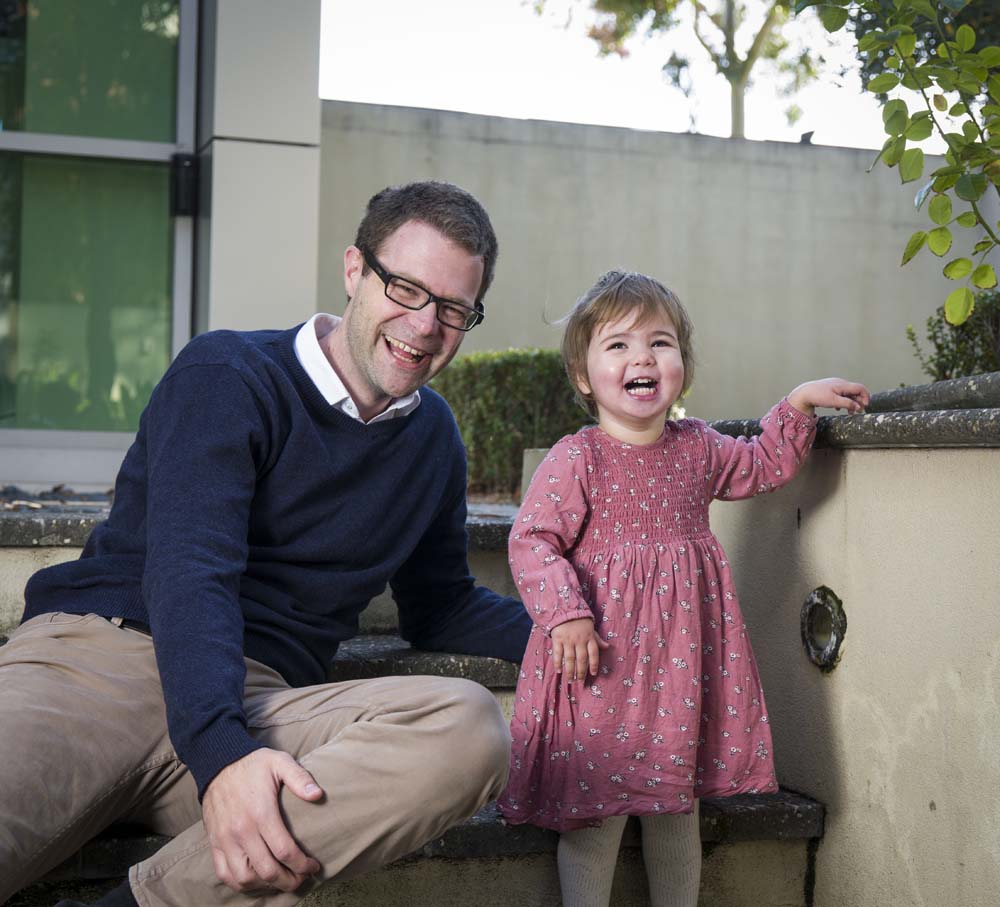Search

News & Events
Therapy with babies boosts social developmentA child-led therapy that supports the social development of babies showing early signs of autism has found a significant reduction in social communication difficulties in babies who received the therapy, according to new research led by CliniKids at The Kids Research Institute Australia.

News & Events
Chance to showcase WA expertise on the international stage thanks to Aspire AwardsTwo of The Kids Research Institute Australia’s best and brightest will share in $10,000 of funding to use for investment in their professional growth through attendance at an international conference, when safe to do so.

News & Events
New friend to improve social attention of kids with autismAn attention-training game developed by researchers at The Kids Research Institute Australia is helping to improve social skill development in school-aged kids with autism.

News & Events
AWESOME ASD guide opens the world of art to kids with autismFor kids on the autism spectrum, it’s not always easy to enjoy art without becoming overwhelmed, overstimulated or anxious.

News & Events
The Kids researchers awarded Raine Medical Research Foundation fundingCongratulations to Dr Gail Alvares and Dr Rachel Foong, who have been awarded funding from the Raine Medical Research Foundation.

News & Events
The Kids Research Institute Australia researcher a finalist for 2017 Eureka PrizeAutism researcher, Professor Andrew Whitehouse from The Kids has been named a finalist in the Eureka Prize for Emerging Leader in Science

News & Events
National guidelines bring new order to autism diagnosisClinicians across Australia are looking forward to the release of the country’s first national guidelines for the diagnosis of autism.

News & Events
Study sheds new light on the ‘autism epidemic’ mysteryResearchers have shown that the so called 'autism epidemic' is due to an increase in the diagnosis of children with less severe behavioural symptoms.
News & Events
Telethon Institute a key player in new national autism researchThe Telethon Institute will play a key role in a ground breaking, multi-million dollar Autism research centre announced by Prime Minister Julia Gillard.
Research
Social impairments in autism spectrum disorder are related to maternal immune history profilethis study is the first to show an association between immune activation history in the mother and increased ASD symptom severity in children with ASD
